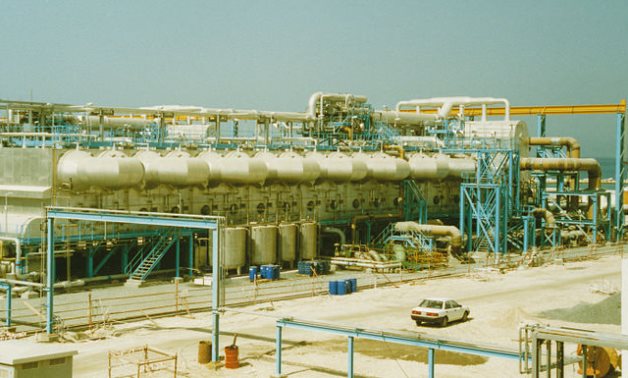
ulti Stage Flash Desalination Plant at Jebel Ali G Station (Dubai), supplied by Weir Westgarth Ltd- CC via photo
CAIRO - 20 August 2021: To accelerate the construction of new desalination plants nationwide, the Egyptian government is seeking to construct 17 desalination water plants that work with solar green renewable energy, with the participation of local and foreign investors, Egypt’s sovereign wealth fund CEO Ayman Soliman told Bloomberg on Thursday.
The government has begun looking for partners to invest in a $2.5 billion project that would be completed by 2025, in a serious attempt to address water shortages, he added.
In July 2021, President Abdel Fattah El-Sisi approved a loan agreement between Egypt the Kuwait Fund for Arab Economic Development to establish two desalination plants in the new cities of Rafah and Bir al-Abed, North Sinai.
The loan, which was signed on November 23, 2020, totals 5.5 million Kuwaiti dinars (about US$ 18,27 million).
It has been reported in August 2020 that Egypt is expected to have 65 desalination plants distributed among six governorates that are Matrouh, South Sinai, Suez, Ismailiyah, North Sinai, and the Red Sea. The total daily production of those is 750,000 cubic meters.
“Egypt is one of the countries that suffer the highest risk of water scarcity as Egypt's water resources are estimated at about 60 billion cubic meters of water annually, most of which comes from the Nile River, besides very limited amounts of rainwater and deep groundwater in deserts,” said Egyptian Minister of Water Resources and Irrigation Mohamed Abdel-Atti in a meeting with a number of lawmakers and members of the Coordination’s Committee of Party’s Youth Leaders and Politicians [CPYP] in June 2021.
The 100-million Egyptians’ total water needs amount to about 114 billion cubic meters annually, and this gap is compensated through the reuse of agricultural wastewater and surface groundwater.
Abdel-Atti continued that Egypt gets 34 billion cubic meters of water annually in importing food products from abroad.

Comments
Leave a Comment